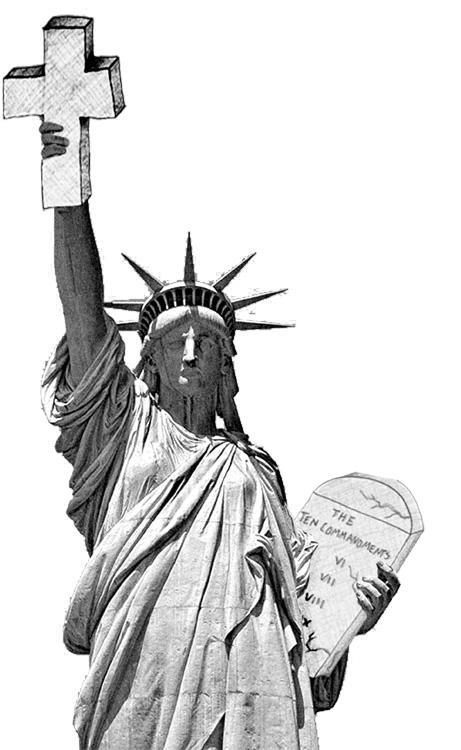Now that Barack Hussein Obama is president-elect, Web sites such as www.wnd.com are popping up with news about Obama’s Islamic roots and faith. Obama’s faith is being questioned by many religious activists, although Obama adamantly and persistently denies any “accusations” of being Muslim. Regardless, such defamatory reports still continue to dogmatically claim that America should get ready to go to hell in a handbasket now that Obama is elected. But my question to all the religious fanatics is simply this: So what if Obama is Muslim? Alexander Hamilton, the first U.S. Secretary of Treasury, claimed, “the Constitution was made for a moral and religious people.” Hamilton does not specify any single religion, so isn’t it a bit pretentious to assume he only meant one major religion and the people belonging to it?This country was founded for many different reasons. But of the most important is the idea of religious freedom. While the majority of the people in the U.S. practice some form of Christianity, this does not imply that we must have only Christian representatives in government. The First Amendment of the U.S. Constitution provides freedom of religion. Everyone has the right to freely practice what they desire. Why must we, then, emphasize a person’s belief when it technically does not matter?Activists will naturally disagree. Of the arguments I have encountered, only one remains embedded in my brain: All religions do not succeed in reaching the Higher Being, there is only one way. This is the mostly widely used argument. Ironically, it is an argument used across faiths: Muslims claim Allah is the only God, while Christians replace the word “Allah” with “Jesus.” In rebuttal to this standard argument, I can only ask the passionate defender to look back at the history of religion and examine its creation closely. Religion was created for much the same reason as the kids’ TV show “Barney and Friends.” “Barney and Friends” was invented to entertain and teach kids moral lessons, and most children’s TV shows have the same purpose. Arguably, religion was created for similar reasons: to entertain and teach. Thus, the masses’ opiates are the same. Hinduism’s Bhagavad Gita preaches the same moral principles as the Christian Bible’s Ten Commandments. “Do not steal; love thy neighbor” are just some of the universal principles accepted and emphasized by all religions regardless of whether they call God “Allah” or “Krishna.” Even accepted philosophies such as Confucianism and Buddhism teach and practice the same morals that Judaism or Christianity preach. The methods may be different. A Buddhist monk may meditate for hours on a Monday to reach Nirvana, whereas a devout Christian will sing songs on Sundays to reach heaven. It’s the same thing in different forms.All bouquets of flowers are not created the same way, but they all connote positive expressions. Likewise, all religions are not practiced the same way, but ultimately they bring about the same result: morality within humanity.Even atheism has moral principles. Atheists, agnotisics and deists all still have morals that society imposes upon them. Today, humanity no longer depends on religion to teach morals. Societal education and community conditioning have usurped the role of teaching individuals morality to such an extent that worship of an entity has become somewhat superfluous. Nonetheless, many humans cling to the traditions of the old and look to the teachings of a Higher Being. If we accept the notion that religion was created to teach morals, we no longer have any reason to persecute people for their beliefs because ultimately, they believe in the same moral principles. Telling people they are going to hell because they do not have the same faith is doesn’t convince them to cross over. Religious tolerance, as much as we say we have it, can only exist when a Hindu girl can walk down an aisle of pious Christian activists without being requested to “accept Jesus into her heart.” As we all plan to travel home this Thanksgiving or winter break, let us consider one final idea. There are approximately 30,000 students on campus. Each is planning a unique way to go home—some students are driving home, taking planes, buses and even carpooling with friends. The methods to reach home are all different, yet the end destination is the same: home. If there can exist so many different ways to travel home, why would there not be multiple methods to reach a universal Higher Being? Why must there only be one way?—-Contact Dini Parayitam at dparayitam@lsureveille.com
Dizzy Dini: All belief systems are created equal in the United States
November 16, 2008




